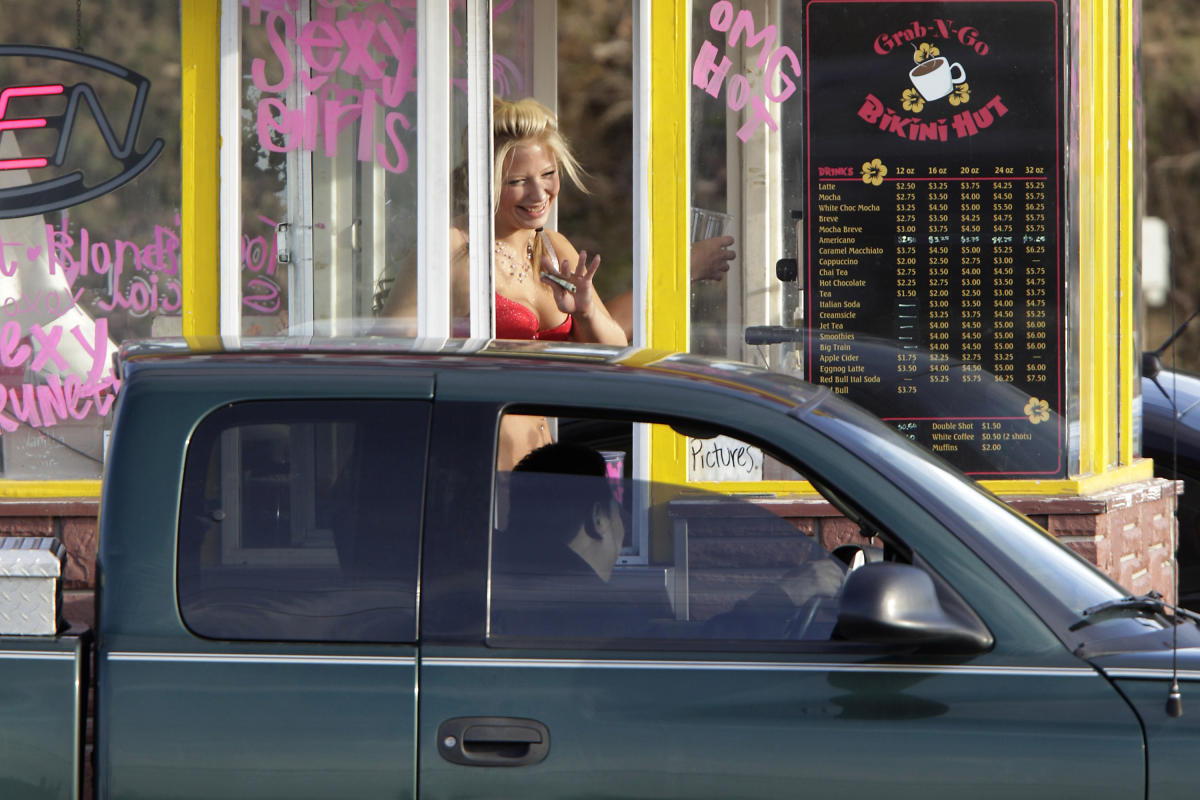EVERETT, Wash. (AP) — A legal battle over a dress code for bikini baristas at coffee stands is coming to an end after a city north of Seattle agreed to pay $500,000 to the owner and employees who sued six years ago.
The Everett City Council voted unanimously this week to authorize Mayor Cassie Franklin to sign the settlement agreement with Jovanna Edge and employees, The Daily Herald reported.
Plaintiffs had sought more than $3 million in damages and attorney fees.
Under the agreement, the city adheres to most trial license rules for coffee stands and other quick service establishments, but no longer dictates that baristas wear at least tops and shorts.
Instead, the city will align the dress code with an existing lewd behavior standard that makes it a crime to publicly expose too much of one’s genitals. Another provision requires business owners to post material to employees with information on how to seek help if they are trafficked or otherwise exploited.
“I’m glad we’re for the baristas and against the people who try to get them to do things they don’t want to do,” City Councilor Liz Vogeli said after the vote.
The settlement may end the saga that began in 2009 when the city received complaints prompting investigations that found some stands sold sex shows, sex acts and allowed customers to physically touch the baristas. Four people were arrested and prosecuted.
In 2013, two espresso stand owners were arrested on charges of promoting prostitution and exploitation of a minor, as well as a Snohomish County sheriff’s sergeant for tipping off baristas about undercover cops in exchange for sexual favors. The sergeant resigned and the owners were convicted.
The city enacted the dress code ordinance in 2017 that requires employees, owners and operators of “quick service facilities” from coffee stands to fast food restaurants to wear clothing that covers the upper and lower body or face fines.
Edge, the owner of Everett bikini barista Hillbilly Hotties, and employees Natalie Bjerke, Matteson Hernandez, Leah Humphrey, Amelia Powell and Liberty Ziska filed a legal complaint alleging that the ordinance violated their First Amendment rights.
“In some countries you have to wear a lot of clothes because of their religious beliefs,” Hernandez wrote. “But America is different because you can wear what you want to wear. I wear what I feel comfortable with and others can wear what they feel comfortable with.”
The case has seen several rulings in the courts, but in October a U.S. District Court judge ruled the dress code unconstitutional.
Ramerman told the council that the city could appeal, but a defeat would result in a bill much higher than the $500,000. The city spent nearly $400,000 defending the ordinance.
The settlement “still gives us our best tool for requiring exhibitors to ensure their employees do not engage in unlawful conduct,” the city attorney said.

